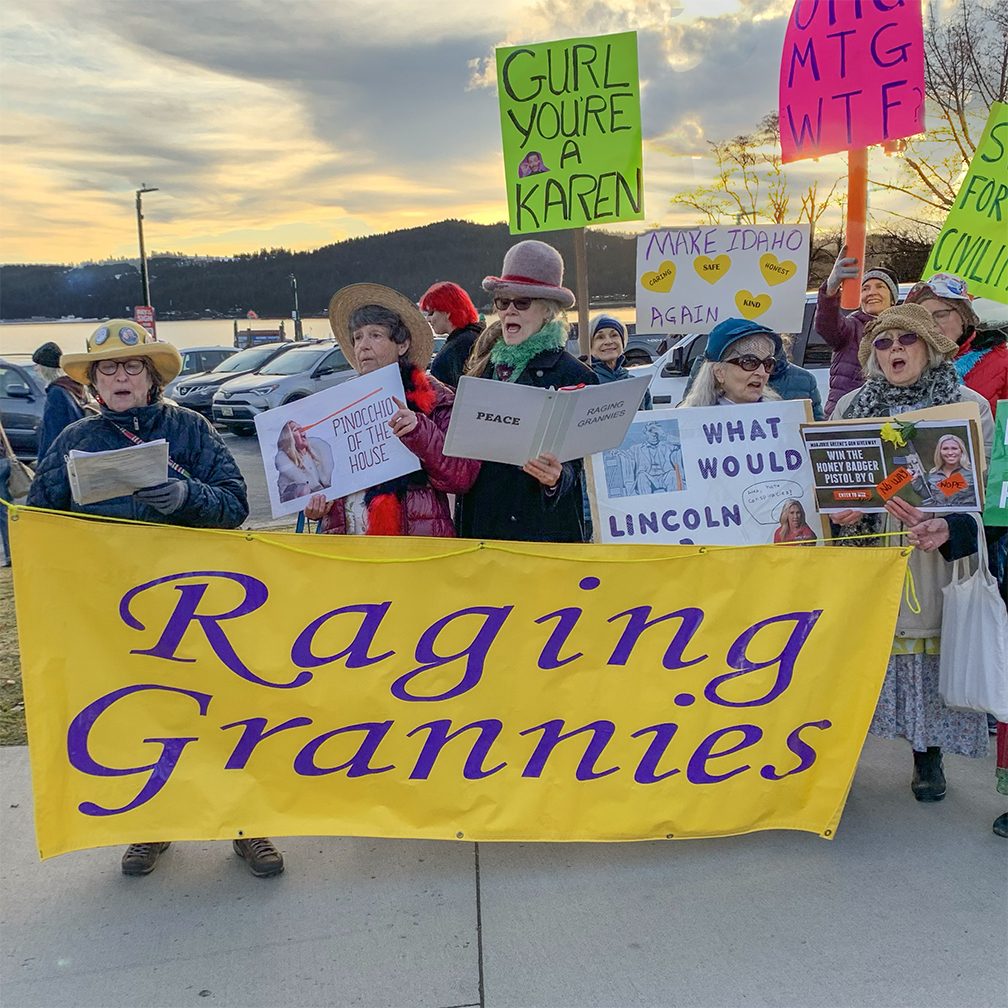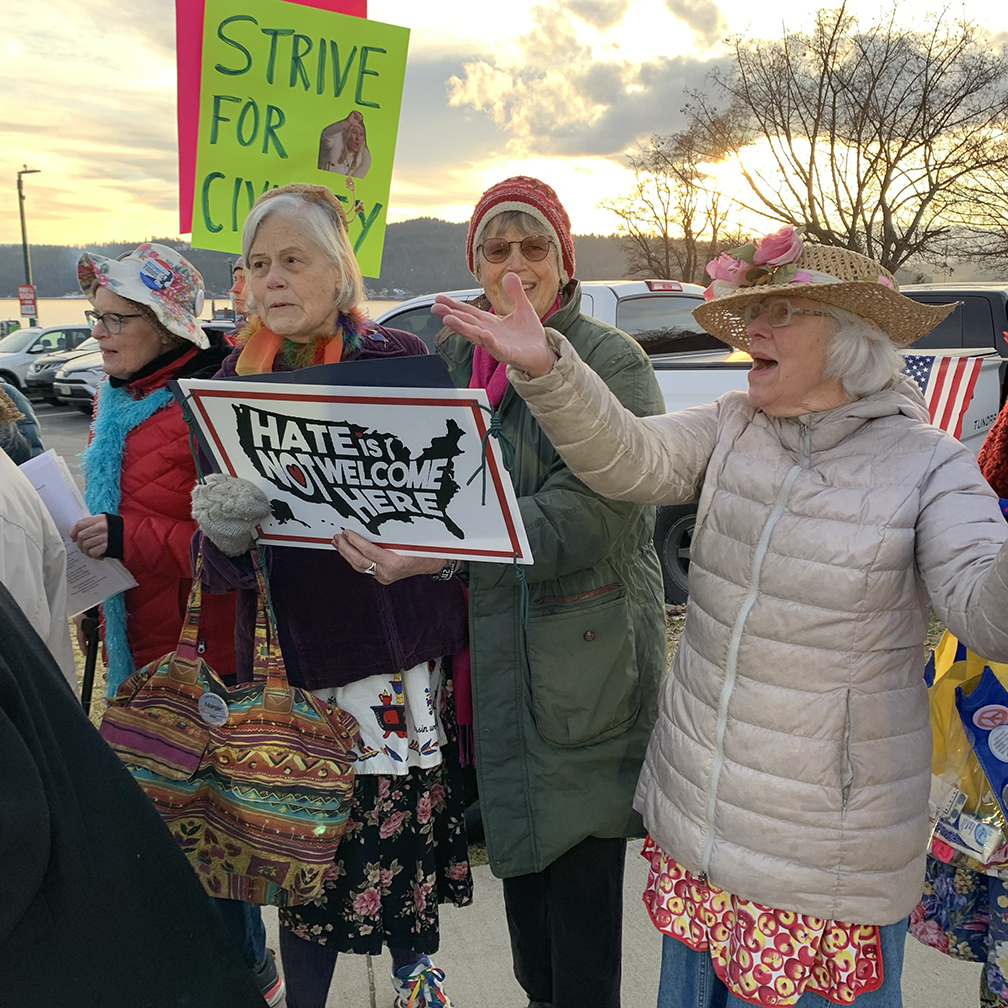Long-Term Mission:
To transform community energy into collaborative solutions that address our shared fears and build the inclusive, thriving community we all want to live in. Many of us have experienced being the sole representative of our demographic in professional or community settings, or have attended meetings where predetermined agendas don’t align with our authentic concerns.
As someone who has navigated being part of a small percentage of African Americans in a predominantly white city, I’ve observed how organizations often approach inclusion through tokenism rather than meaningful engagement—a reality that can feel both frustrating and isolating. This plan leverages the energy from recent demonstrations and channels it into constructive, solution-focused action.
Phase 1: Foundation Building (Weeks 1-3)
[A] Digital Outreach Strategy:
- Website landing page with clear campaign overview and sign-up
- Social media campaign targeting both demonstration groups with bridge-building messaging
- Email templates for stakeholder outreach
- Digital toolkit with shareable graphics and talking points
[B] Stakeholder Mapping & Outreach: Priority Contacts:
- Educational: Eastern Washington University, Community Colleges of Spokane, Spokane Public Schools
- Faith-based: Interfaith Council, individual congregations from diverse traditions
- Community: Libraries, YMCA/YWCA, community centers, neighborhood councils
- Business: Chamber of Commerce, downtown business associations
- Civic: City Council members, county commissioners, local nonprofits
- Media: Spokesman-Review, local radio stations, community newsletters
Please specify any thoughts or ideas on individuals or organizations you would like to see participate. Add them in the white Thoughts and Ideas box at the end of the document, including topic letter [B].
[C] Develop Letter Template for Stakeholders
Phase 2: Session Design & Launch (Weeks 4-6)
[D] Meeting Structure (2-hour format):
Opening (15 minutes):
- Welcome and ground rules for respectful dialogue
- Brief overview of campaign goals
- Icebreaker: “One thing you love about our community”
Solutions Overview (45 minutes):
- Present research-backed solutions (using our conversation as base)
- Focus on local applications of broader strategies
- Interactive elements: polling, small group discussions
Action Planning (45 minutes):
- Break into working groups by interest area
- Develop 3-month action plans with specific commitments
- Identify next meeting dates and responsibilities
Wrap-up (15 minutes):
- Share group commitments with full room
- Sign-up for follow-up communications
- Evaluation forms
[E] Working Group Categories:
- Economic Solutions: Job training, small business support, cooperative development
- Educational Initiatives: Civic education, media literacy, cross-cultural programs
- Community Building: Interfaith dialogue, neighborhood connections, cultural events
- Policy & Governance: Local government engagement, voting access, transparency
- Youth & Families: School programs, childcare, mentorship
- Health & Wellness: Mental health, substance abuse, community safety
Phase 3: Technology Integration
[F] Digital Tools Setup:
- Registration system (Google Forms or Eventbrite)
- Live note-taking (Google Docs collaborative editing)
- AI transcription (Otter.ai or similar for accessibility)
- Summary generation (ChatGPT or Claude for quick summaries)
- Communication hub (WhatsApp groups or Slack channels by working group)
Are you using any AI software? Do you have any opinions?
Documentation Process:
- Pre-session: Share background materials via email
- During session: Take notes on provided worksheets and share them
- Post-session: AI-generated summary distributed within 24 hours
- Follow-up: Action item tracking and progress updates
Phase 4: Sustained Engagement (Ongoing)
Monthly Cycle:
- Week 1: Working group meetings (action planning)
- Week 2: Implementation activities
- Week 3: Cross-group coordination meeting
- Week 4: Community-wide progress sharing
Quarterly Milestones:
- Month 3: First major collaborative project launch
- Month 6: Policy proposal presentation to city council
- Month 9: Community festival celebrating progress
- Month 12: Annual report and expansion planning
Budget-Conscious Implementation
[G] Free/Low-Cost Resources:
- Venue partnerships (free space in exchange for programming)
- Volunteer facilitators from community organizations
- Student volunteers from colleges for tech support
- In-kind donations (printing, refreshments, supplies)
- Grant opportunities (community foundation, civic engagement grants)
[H] Potential Funding Source Examples:
- Spokane Community Foundation
- Washington State Community Engagement grants
- Local business sponsorships
- Crowdfunding for specific projects
[I] Messaging Strategy
Core Messages – Discussion:
- “From demonstration to collaboration”
- “Solutions, not just problems”
- “Building the community we all want to live in”
- “Every voice matters, every action counts”
Bridge-Building Language Examples:
- Focus on shared values (safety, prosperity, opportunity)
- Use inclusive pronouns (“we,” “us,” “our community”)
- Emphasize local identity (“Spokane strong,” “Inland Empire values”)
- Avoid partisan language or blame
Success Metrics
Short-term (3 months):
- Number of organizations partnering
- Attendance at sessions
- Working groups formed
- Action commitments made
Medium-term (6-12 months):
- Projects launched
- Policy proposals submitted
- Cross-demographic relationships formed
- Media coverage and community awareness
Long-term (12+ months):
- Measurable community improvements
- Sustained participation
- Model replication in other communities
- Institutional changes adopted
Risk Management
[J] Potential Challenges – Examples:
- Polarization: Some may see this as naive or partisan
- Burnout: Volunteer fatigue after initial enthusiasm
- Capture: Single-issue groups dominating agenda
- Resources: Scaling beyond initial capacity
[K] Mitigation Strategies:
- Clear ground rules and professional facilitation
- Rotating leadership and shared responsibility
- Diverse steering committee with broad representation
- Phased growth rather than rapid expansion
This approach transforms post-demonstration energy into sustained, solution-focused community building. It’s scalable, technology-enhanced, and designed to bridge divides rather than deepen them. The key is starting small, proving the concept, and growing organically based on community response.
We are interested in hearing from you. Please leave a comment.
If you’d like to volunteer for this campaign to fight fear, fill out the form below and say why this might be of interest to you. Please specify any thoughts or ideas you would like to contribute in the comment field below. Specify the paragraph letter that you are commenting on.
You’ve read this page. Review the “Open Letter to Our Spokane Community” https://4comculture.com/archives/19543 and share it with anybody you think would be interested.
Like this:
Like Loading...




















